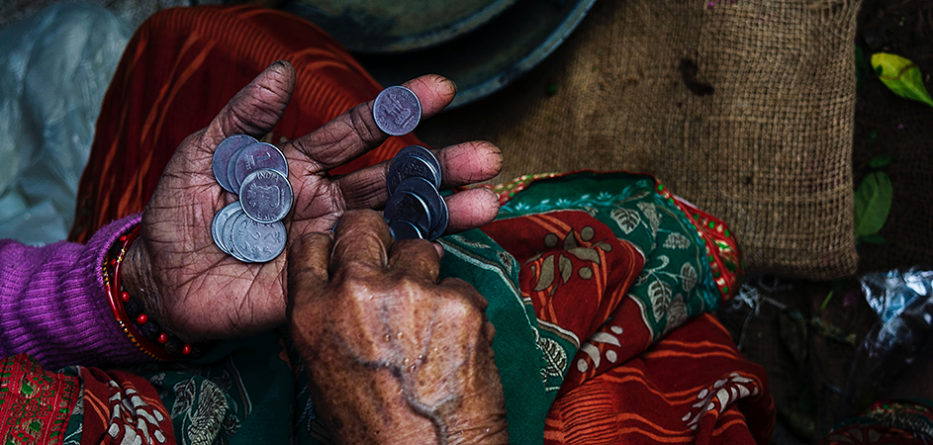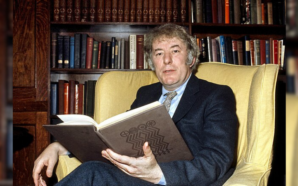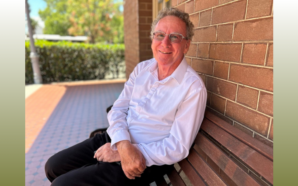Homily for the 32nd Sunday in Ordinary Time
Readings: 1 Kings 17:10-16; Psalm 145:7-10; Hebrews 9:24-28; Mark 12:38-44
7 November 2021
In today’s gospel, Mark starkly contrasts Jesus’ adverse assessment of the scribes “who swallow the property of widows, while making a show of lengthy prayers” over against Jesus’ praise for the poor widow who puts in “everything she possessed” to the treasury of the Temple which Jesus predicts will be destroyed with “not a single stone…left on another; everything will be pulled down”.
LISTEN: https://soundcloud.com/frank-brennan-6/homily-71121
Very few of us identify with the scribes. But most of us at some stage compare ourselves with the poor widow doing her bit, adding her two pennies to the Temple treasury. At times we wonder, what’s the point? What difference could it possibly make?
On one level, what the poor widow contributes counts for next to nothing. The widow’s mite is not going to maintain the Temple. It’s on that level that we and our leaders have conducted ourselves for so long addressing the issue of climate change. What possible difference could my two small coins contribution make, so why bother?
Confronting the big issues like climate change, we wonder, how could anything I do make the slightest difference? At the end of COP26, we even ask: Given the absence of some of the key players like China and Russia from Glasgow, what can the rest of us do?
Then we play the mental gymnastics: I’ll give more, I’ll do more if you give more, if you do more. You’ll do more if I do more. So neither of us ends up doing anything extra. Neither of us takes the first step. We saw this played out this week with Mathias Cormann, one-time Australian minister who countered so many moves to put a price on carbon when in government. He is now head of the OECD and there he was in Glasgow urging a price on carbon. As he said:
“My view has always been that we needed ambitious and effective action on climate change, but that to be environmentally effective, economically responsible and publicly supported over the long run, climate action, including any approach to carbon pricing, had to be appropriately globally coordinated.”[1]
If only we had better co-ordinated the contributions by the millions of poor widows. Things might have turned out for the best in all manner of situations. Absent appropriate global co-ordination, what is to be done?
This week we mark the 30th anniversary of the Santa Cruz Massacre in Dili. On 12 November 1991, Indonesian soldiers opened fire on defenceless Timorese in a funeral procession inside the walled Santa Cruz cemetery. On the 30th anniversary, the funeral will take place at St Stephen’s Cathedral in Brisbane of the Jesuit educated photojournalist Max Stahl who filmed those ghastly moments. He captured on film the massacre of almost 280 peaceful demonstrators by Indonesian troops. Stahl said, “I was just getting my camera ready when there was a wall of sound, at least 10 seconds of uninterrupted gunfire. The soldiers who arrived fired point blank into a crowd of a couple of thousand young people.”[2] He buried the film in a fresh grave. He was then arrested and questioned for nine hours. He later returned to the cemetery under cover of night, recovered the film, smuggled it out of the country, and broadcast it to the world. His footage was a real game changer in the Timorese international campaign for freedom and independence against an oppressive Indonesian regime.
There was never any guarantee that Stahl would be able to retrieve and show his film. There was never any guarantee that one photojournalist would make a difference to the plight of a fledgling nation. Without the slightest prospect of appropriate global co-ordination, he contributed his widow’s mite. He gave what little he had; he gave his all. There are times when each of us is called to do the same, especially when a desired outcome seems completely against the odds.
Stahl is an inspiration for all those coming away from COP26 wondering what difference they might make. The widow’s mite can also be an inspiration for those of us labouring in the Church as well as in the world. When wondering what good can come of our Plenary Council in the Australian Church, we can contemplate the poor widow who puts in “everything she possessed” to the treasury of the Temple which is headed for destruction.
This weekend we mark the 10th anniversary of the death of Fr John Eddy SJ, priest and historian. In 1971, John looked back over the previous 50 years in Australian Catholicism noting that “even in 1921 when John O’Brien praised the ‘same dear happy circle’ of the Irish Australian family around the ‘Boree Log’, he went on, with some wistfulness, to mourn the scattering which was already breaking up that warm group.” John said, “Fifty years later only a poet of abnormal insight would dare to sing so intimately of the complex community of (those) who go to make up the Australian Catholic Church.” Professor Eddy wrote:
“Radical periodicals come and go. Practice remains high, but there appears to be in church life, as in other areas of Australian life, a potentially dangerous element of frustration. Unintelligent insistence on what is believed or imagined to be rigid orthodoxy and suspicion of ‘intellectuals’ can bruise the adventurous and stunt initiative. A greater danger is perhaps still apathy, cloaked by a gentle irony or a cynical cult of passionless mediocrity. Co-responsibility in the Church has yet to find its authentic Australian flowering.”
Another fifty years later, a century after O’Brien penned ‘Around the Boree Log’, as we prepare for the next phase of our fifth (only) Plenary Council, we could all do with the insights of a dedicated historian.
John Eddy knew there were times to speak and times to be silent; but behind the scenes he was always an encourager. Just before his death he wrote to a long time refugee advocate despairing of the inhumane bipartisan Australian policy on the treatment of asylum seekers arriving by boat. He wrote: “Once again congratulations on your perspicacity, enterprising mind, probing spirit and sheer guts! You may sometimes feel that our frail world is spinning uneasily to disasters of our own making. But in my humble opinion you have pulled much more than your weight in the effort to serve your fellow creatures and enable us to work together towards a happier, more ethical and beautiful future by the grace of a Designer who has given us so much potential and free choice in our brief mortal life.”[3]
Such advocates continue to contribute the widow’s mite, as did Max Stahl in Dili 30 years ago, as did many climate change advocates in Glasgow this past week. Scripture scholars like John Donahue and Daniel Harrington leave us with this quandary: “The widow is surely generous. But is she generous to a fault? Does Jesus really approve her action?….Thus, the context (of this account) raises the question whether the generosity of the poor widow should be taken as an occasion for praise or for lament. When interpreted as cause for lament the widow’s action would illustrate the perils of institutional religion whereby the Temple establishment manipulated this generous woman into parting with what little she possessed. At the very least, attention to the Markan context leaves open whether the widow is presented as a model to be imitated for her sincerity and generosity or as someone to be pitied as a victim of religious exploitation.”[4]
As we prepare for the next phase of our Plenary Council, we need to be attentive to the voices of those on the peripheries whose past meekness and silence has been taken as a sign of sincerity and generosity. We must always be on our guard against those who exercise religious authority like scribes “who swallow the property of widows, while making a show of lengthy prayers”.
Thanking God for those like Max Stahl, John Eddy and the committed advocates – whether in Canberra agitating for refugee rights or in Glasgow agitating for the climate, we pray:
Praise the Lord, my soul!
It is the Lord who keeps faith for ever,
who is just to those who are oppressed.
It is he who gives bread to the hungry,
the Lord, who sets prisoners free.
Praise the Lord, my soul!
It is the Lord who gives sight to the blind,
who raises up those who are bowed down.
It is the Lord who loves the just,
the Lord, who protects the stranger.
Praise the Lord, my soul!
The Lord upholds the widow and orphan
but thwarts the path of the wicked.
The Lord will reign for ever,
Zion’s God, from age to age.
Praise the Lord, my soul!
Fr Frank Brennan SJ is the Rector of Newman College, Melbourne, and the former CEO of Catholic Social Services Australia (CSSA). He has been appointed a peritus at the Fifth Plenary Council of the Australian Catholic Church.
[1] Australian Financial Review, 5 November 2021, at https://www.afr.com/policy/energy-and-climate/the-remarkable-reinvention-of-mathias-cormann-20211105-p596bl
[2] Max Stahl Obituary, The Guardian, 4 November 2021, at https://www.theguardian.com/world/2021/nov/04/max-stahl-obituary
[3] Frank Brennan, Homily for John Eddy, Eureka Street, 11 November 2011, at https://www.eurekastreet.com.au/article/homily-for-john-eddy
[4] John R Donahue & Daniel J Harrington, The Gospel of Mark, Collegeville, MN: The Liturgical Press, 2002, p. 365








